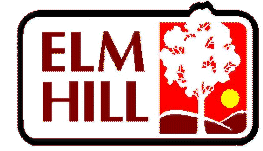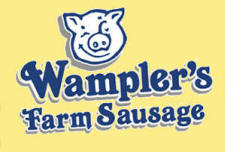Statement
Of Position
In
November of 2007 the Lenoir City Utilities Board met to
consider rate increases for water and waste water. The board
was told by managers of LCUB that the proposed rates were in
accordance with a TDEC rate study. TDEC does not perform
rate studies and have advised us they do not have one for
LCUB.
Further,
managers of LCUB told the board that the rate increases for
Family Brands and Wamplers would be 30 to 40 percent and in
a 6 to 1 vote they adopted the new rate structure which went
into effect in January of this year. In reality, the rate
increase on Family Brands and Wamplers was more than double
what the board was told.
Representatives from Family Brands and Wamplers began
contacting officials of LCUB earlier this year to request a
review of the rates, which are more than double the average
of all the surrounding utility systems. We provided them
with a letter and data showing the rates of the surrounding
systems as well as the rates of the utilities where our
competitors are located.
LCUB
Manager Freddie Nelson told us that we just needed to go up
on what we charge for sausage. This same sentiment was
expressed to us by board member Gene Hamby. They want the
public to pay for their new treatment plant in the form of
higher grocery bills. We do not agree.
Further,
unlike LCUB, we have competition and our customers have the
ability to make choices. Williams Sausage in West Tennessee
is one of our closest competitors and they pay $1.82 per
thousand gallons for waste water treatment, while LCUB
charges Wamplers $8.72 which is nearly five times as much.
In order for us to compete, we must have a level playing
field.
We
explained that it was our desire to remain customers of LCUB,
but that we could not absorb an increase of over $8,000.00
per week. We listed our options as follows:
1.
We could relocate our
facilities elsewhere and to that end, we have looked at
several plants over the last few weeks. This would be our
last choice, but there are attractive locations available.
2.
We could move part or
all of our production to other plants, provided it met
our high standards and specifications.
3.
We could treat our
own waste water. We have hired an engineering firm that
specializes in this area and have brought in engineers and
specialists to put proposals on the table for the equipment
to achieve this.
4.
We could treat our
own incoming water. We purchased a water treatment plant
in Virginia last week and are in the process of moving that
equipment here.
We stated
very clearly, in advance of their vote, that if LCUB adopted
competitive rates that we would remain customers. Equally
as clear, we emphasized that if we were forced to pursue
other options that our funds would possibly no longer be
part of their revenue stream to fund their expansion plans
or their continued existing operations.
Following
these contacts with board members,
City Attorney Shannon
Littleton sent a memo to the board of LCUB stating that
LCUB management had reviewed the new rate structure and that
the increase was 82 percent for water and 88 percent for
waste water. The memo went on to say that this was in
accordance with the TDEC rate study. A request was made to
LCUB under the Tennessee Open Records Act for same and no
document was provided.
The bids
for the new treatment plant came in considerably below the
original estimates. Board member Eddie Simpson asked the
utility board to pass the savings from the lower cost back
to the industrial customers because that is where the
increase was the largest. Greg Jones stood and said they
could need the extra money for contingencies. No vote was
taken on the issue at that meeting.
At the
next meeting of the utility board this issue was discussed
again, but no vote was taken. Finally a called meeting was
held on July 10, 2008 for consideration of the rates. Board
member Eddie Simpson made a motion that the rates be 40
percent over last year, which is what they thought they had
approved in the November meeting. After much discussion the
only three yes votes were from Eddie Simpson, Tony Aikens,
and Buddy Hines. The motion failed and the previously
instated rates remain in force.
We would
like to thank the Lenoir City Utilities Board for holding
the called meeting on July 10, 2008 to review the current
rate structure that has been adopted for water and waste
water. We understand that LCUB needs to build a new
treatment facility, whether we are customers of same or not.
We understand that in large part this is due to LCUB’s
contract with Roane County which allows for up to 750,000
gallons per day being sent to LCUB. All rate payers are
expected to pay for LCUB’s decision to service Roane County.
We have
put forth every effort to remain a customer of LCUB at rates
that compared either with the surrounding utility systems or
rates that would be competitive in nature with those
companies which are in competition with us. At the same time
we have been very transparent as to our inability to pay
more than double the average rate of the surrounding systems
or nearly five times the rate of our competitors without
pursuing other options.
In 2008
alone, with the new rates in place, we will pay over
$400,000 extra for water and waste water. LCUB has also
already passed additional increases that go into effect for
2010, 2011 and 2012 culminating in rate increases of over
100 percent. Who could imagine an increase in any rate or
tax of over 100 percent? They have gone up, and are going up
each of these years on all rate payers.
These new
rates and the future rates have never been submitted to City
Council for approval. According to Tennessee Law it is the
responsibility of the City Council to adopt rates. We
believe these rates as well as all rates passed by LCUB
which have not been submitted to City Council for approval
are not legal for any LCUB customers.
We are
paying our bills under protest and believe a refund is due
to us and all rate payers. If any other customers of LCUB
would like to claim a refund, we suggest that you notify
Mayor Matt Brookshire, Chairman of LCUB and his father
in-law Freddie Nelson, Manager of LCUB, that you too are
paying these rates under protest.
Although
we have spent a great deal of time and money dealing with
this issue, we (on behalf of our two companies and over 300
employees) are still willing, at this point, to accept rates
which are comparable to the surrounding systems as expressed
in our first letter to the management of LCUB. With each
passing day, this becomes less of an option and completely
disappears once we sign any contracts to purchase additional
treatment equipment or facilities elsewhere.
Management Wampler's and
Elm Hill



